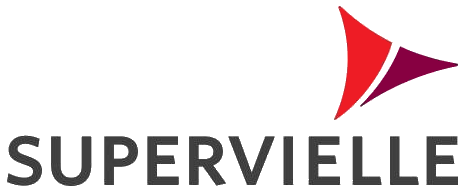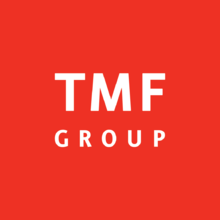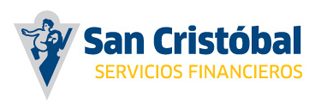Relevant News on the Renewable Energy Sector
On July 11th, 2019, Decree No. 476 (the “Decree”) of the National Executive was published in the Official Gazette, with relevant news regarding the renewable energy regime.
The Decree has partially amended Decree No. 531/2016 (regulating) Laws No. 26,190 and No. 27,191. Most relevant aspects of the Decree are summarized below:
- Simplification of the process to obtain the Inclusion Certificate
The Secretary of Government of Energy—in its capacity as enforcement authority of the renewable energy regime—is empowered to: (i) analyze and approve the renewable projects that may apply for the Inclusion Certificate; and (ii) grant, to each of the approved projects, amounts requested as tax benefits, without the prior intervention of the Secretary of Treasury. In addition, the Decree eliminates the Ministry of Treasury’s intervention which is now no longer required.
- Execution of Power Purchase Agreements (“PPAs”) with public-owned entities
The Decree entitles CAMMESA (Wholesale Electric Market Management Company) to enter into PPAs with public-owned entities (either national, provincial and/or City of Buenos Aires’ owned). Prior the Decree, such entities were allowed to execute PPAs with CAMMESA insofar they participated in public tender procedures. The Decree now allows them to execute PPAs without participating in those procedures, to the extent that the following requirements are met: (i) the generation facility is owned by such public entities; (ii) those projects are able to access better financing conditions in comparison with the ones that the Federal or Provincial State could access to; and (iii) the investment projects have a relevant impact in local development.
Assignment, transfer or subcontracting of the PPAs are forbidden.
The agreed price under the PPA must be in line with those arising from public tendering called by the Secretary of Government of Energy, which implies that these agreements must be entered on a market condition basis.
As of this measure, public-owned entities are now eligible to enter into PPAs: (i) within the term market (approved by Resolution No. 281/17), and/or (ii) directly with CAMMESA, either directly (based on the Decree) or after being selected as such after a competitive procedure is carried out.
- Expectations for the Round 4 of the RenovAr Program
Senior officers of the Secretary of Government of Energy have announced that they are working in the design of the future Round 4 of the RenovAr Program, which is expected to be officially launched on November 2019.
Unlike the other rounds of the RenovAr Program, this new round is believed to require the bidders, in addition to their generation projects, the execution of works for the extension of the transmission capacity of some main lines of the Argentine electricity sector.
For further information, please do not hesitate to contact either Nicolás Eliaschev, Javier Constanzó or Juan Pablo Filippini.
Vaca Muerta: The Contracting Process for the Construction of an Essential Natural Gas Pipeline has Begun
On July 10th, 2019, Decree No. 465 (the “Decree”), issued by President Macri, has been published in the Official Gazette. By means of the Decree, the Secretary of Government of Energy (the “SGE”) has been instructed to call a public national and international tender with the purpose of awarding a new natural gas transport license for a new facility. This new infrastructure project entails the design and construction of a natural gas pipeline that will connect the Neuquén’s Subzone with the cities of Salliqueló and San Nicolás, both located in the province of Buenos Aires.
Pursuant to the Decree, the new transport license shall include a special regime lasting 17 years as from commercial operation date. The main terms of this special regime are summarized below:
- The licensee’s remuneration shall be freely negotiated with the users of the gas pipeline;
- The licensee’s remuneration shall not impact in the natural gas residential end users’ rates;
- The terms and conditions of the tender to be called by the SGE shall provide a partial award of pipeline’s capacity. The remaining capacity shall be assigned through public tenders, in compliance with the applicable regulations.
Finally, the Decree provides that Law No. 24,076 -that rules natural gas’ transportation and distribution-, shall be the project’s legal framework, instead of the Law No. 17,319 -that recognizes the operating concessionaire’s right to transport its hydrocarbons-. However, as long as the special regime remains effective, Law No. 24,076, Title IX, Chapter I provisions to the extent they contradict the Decree, shall not be applicable.
For further information, please do not hesitate to contact either Nicolás Eliaschev, Javier Constanzó or Juan Pablo Filippini.
20 Minute Insight
📺 👉🏼 Our partner Nicolás Eliaschev was interviewed by Jamie Dowswell, Programme Director of AIREC, about the outlook for Argentina's Renewable Energy Sector for this year.
Ensenada de Barragán thermal power plant sale

![]()
Integración Energética Argentina S.A. (“IEASA”), undertook the National and International Public Bid No. CTEB 02/2019 (the “Public Bid”) by means of which the “Ensenada de Barragán” power plant was sold and transferred, according to the terms and conditions disposed by Decree No. 882/2017 of the Executive Branch and Resolution No. 11-E/2018. As a result of the Public Bid, IEASA awarded to YPF S.A. and Pampa Cogeneración S.A., as sponsors of CT Barragán S.A.
Regulatory Updates: New Terms and Conditions for Hydrocarbon Transport Concession's Public Tendering
On July 1st, 2019, Resolution No. 357 (the “Resolution”), issued by the Secretary of Government of Energy (the “SGE”), has been published in the Official Gazette, with important implications in regards to public tendering procedures which shall be carried out in order to grant concessions for hydrocarbon’s transportation. Tenders of this nature may rely on project’s submitted by private entities, as further described below.
Pursuant to Annex I of the Resolution, those tenders may comprise:
- Concessions for hydrocarbon’s transportation, which have been reverted from the former concessionaire to the pertaining governmental body or entity.
- Projects submitted by private entities, which shall contain minimum standards such as a general description of the project’s nature and aspects involved in its execution, land matters, etc.
- New hydrocarbon transportation projects required to satisfy demands of the users.
The Resolution also foresees that all public tenders launched by the SGE in order to grant a hydrocarbon transport concession shall contain a bid document containing main terms and conditions of such competitive procedure.
In addition the Resolution further stipulates requires that all projects submitted by any private entity to the relevant governmental authorities must clearly specify land matters-related issues involved in such project.
The Resolution also authorizes foreign corporations (not registered in Argentina’s registries of commerce as of the date on which the Resolution is issued) to submit proposals of this nature for purposes of being evaluated and subject to a public tendering thereafter. However, foreign entities are bound to register before the mentioned registries’, to the extent that their proposal is admitted and prior to the public tender being issued.
Furthermore, the Resolution indicates that the governmental authorities shall provide their ruling regarding project’s feasibility no later than thirty (30) business days from the project being submitted thereof.
Finally, the Resolution requires prior registration of the interested companies before the Hydrocarbon Transport Registry for their participation in the public tenders.
For further information, please do not hesitate to contact either Nicolás Eliaschev or Javier Constanzó.
Amendment to the fiduciary trust agreement of the thermal power plant ENARSA – Brigadier López

![]()
Counsel of Integración Energética Argentina S.A. (formerly Energía Argentina S.A.) and BICE Fideicomisos S.A. under all aspects related to the financial and capital markets terms and conditions of the amendment to the fiduciary trust agreement of the thermal power plant ENARSA – Brigadier López, which allowed the financing of its construction. The amendment was executed as a consequence of Decree No. 882/2017 of the National Executive Branch and Resolution No. 11-E/2018 and the National and International Public Bid No. CTBL 01/2018 that altogether stipulated the sale of the power plant ENARSA – Brigadier López. As a consequence, Central Puerto S.A. was awarded the public bid, which allowed it to be the new owner of the power plant ENARSA – Brigadier López and therefore replacer Integración Energética Argentina S.A. as original trustor under the financial trust agreement.
“San Luis Progresa” Collateral and Payment Trust



Legal counsel to the Municipality of the city of San Luis, Banco Supervielle S.A. and TMF Trust Company (Argentina) S.A. in the constitution of the “San Luis Progresa” Collateral and Payment Trust, in which the Municipality of the city of San Luis acted as trustor and beneficiary, TMF Trust Company (Argentina) S.A. acted as trustee, and Banco Supervielle S.A. acted as collection agent.
“CARFACIL IV” Financial Trust for AR$ 71,210,892

Deal counsel in the placement and issuance in Argentina of trust securities for AR$71,210,892 issued under the “CARFACIL IV” Financial Trust, whereby TMF Trust Company (Argentina) S.A., as trustee under the private financial trust “FINANCIAL TRUST CARFAUTO” acted as trustor, Banco de Valores S.A. acted as trustee, organizer and replacement servicer and Ralf S.A. acted as credit administrator and paying agent. Banco de Valores S.A., INTL CIBSA S.A., Macro Securities S.A. and Industrial Valores S.A. acted as placement agents.
Celulosa Argentina S.A.’s USD 3,521,129 Class 12 Notes

Counsel in Celulosa Argentina S.A.’s issuance of Class 12 Notes for AR$ 3,521,129 under the Global Program of Notes for an amount of up to US$ 280,000,000. Puente Hnos. S.A. and BST acted as placement agents of the Class 12 Notes.
Global Trust Program “San Cristóbal Servicios Financieros”

Deal counsel in the creation of the Global Trust Program "San Cristóbal Servicios Financieros” for up to US$ 45,000,000, in which San Cristóbal Bienes Raíces S.A. acts as trustor, and TMF Trust Company (Argentina) S.A as trustee and issuer.



